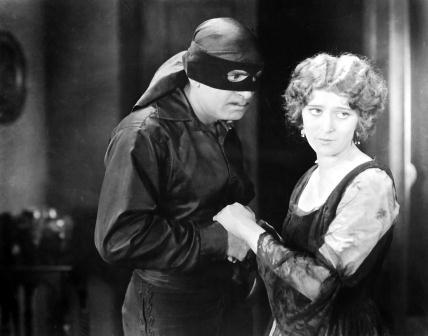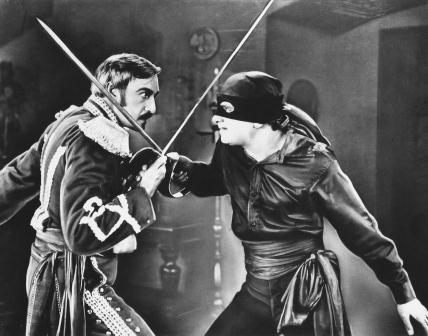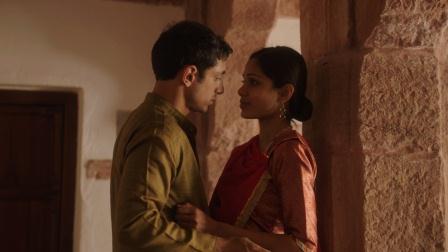
The term "class warfare" has been in constant use since Barack Obama began campaigning for the presidency. Of course, many of the people who whine about class warfare have no concept of its historical meaning:
- In medieval time the infamous droit de seigneur allowed a feudal lord to claim the right to deflower any serf's maiden daughter.
Despite all this, Americans must listen to the whining upper class as they try to paint themselves as sanctified "job creators" who should be pampered instead of persecuted:
- Speaker John Boehner can't stop crying about how mean people have been to the millionaires and billionaires who donate to conservative causes.
However, scattered throughout literature there are characters, like the Scarlet Pimpernel and Batman, who use their wealth and social privilege to act on behalf of the less fortunate. However, such cultural heroes are almost always figments of a writer's imagination.
* * * * *
There were many surprises in store for me when I attended a screening of 1920's The Mark of Zorro at the recent San Francisco Silent Film Festival. Based on a 1919 story by Johnston McCulley, entitled The Curse of Capistrano, this was the movie that introduced the swashbuckling character of Don Diego de la Vega (also known as Zorro) to film audiences. But did you know that Milton Berle had an uncredited role as one of the children in the film? Having grown up watching Guy Williams in the 1957 Zorro television series, I, for one, did not, nor did I expect to encounter a character actor named Walt Whitman portraying the aged Fray Felipe!
Directed by Fred Niblo with a grand sense of swashbuckling action, social justice, and unexpected humor, the film stars the great Douglas Fairbanks as the masked hero who consistently flummoxes Sgt. Pedro Gonzales (Noah Beery), with the occasional help of his stone-faced, mute servant, Bernardo (Tote Du Crow). In The Mark of Zorro, Don Carlos Pulido (Charles Hill Mailes) and his wife, Doña Catalina (Claire McDowell), are trying to find a wealthy man who will marry their daughter, Lolita (Marguerite De La Motte). Money has been tight, the thugs working for Governor Alvarado (George Periolat) and Capitán Juan Ramon (Robert McKim) are making people's lives miserable, and Lolita wants to marry for love, not for money. Meanwhile, the wealthy Don Alejandro (Sidney De Gray) is trying to persuade his foppish son to take a wife in order to preserve the family's name. Little does Don Alejandro know that his son, who can barely muster the strength to blow his own nose, is the mysterious masked man who has been coming to the rescue of the common people.

Douglas Fairbanks and Marguerite De La Motte in The Mark of Zorro
One of the effete Don Diego's most endearing traits is his fascination with sleight of hand (the character constantly asks people, "Have you seen this one?" before performing a magic trick). In the following clip, Fairbanks demonstrates his talent for flirting with a prop and a girl simultaneously. Be sure to watch Lolita's excited hands as the scene heats up.
Prior to moving to Hollywood, Fairbanks appeared on Broadway in 18 stage productions between 1902 and 1915, where he became known for his athleticism and time spent at the gym. During the 1906 run of Avery Hopwood and Channing Pollock's drama Clothes, he became adept at repeatedly climbing the backstage stairs on his hands. In an age where stunt doubles, green screens, and CGI scripting have taken most of the raw talent out of a star's acrobatic technique, it's refreshing to watch Fairbanks in action as he performs his own stunts.
From the standpoint of social justice, what may be most remarkable about The Mark of Zorro are the scenes in which Zorro convinces Don Alejandro and his father's friends to take up arms against the corrupt governor and fight on behalf of those who can't defend themselves. As always, Dennis James accompanied the screening on the Mighty Wurlitzer with a great sense of flair.

Robert Kim and Douglas Fairbanks cross swords in The Mark of Zorro
* * * * *
Unlike The Mark of Zorro, Trishna (which I saw at the San Francisco International Film Festival) is not a period costume drama. Adapted from Tess of the D'Urbervilles (Thomas Hardy's 1891 novel), the action has been updated to contemporary India and set in the province of Rajasthan.

Freida Pinto as Trishna
Starring Freida Pinto as a poor, young Indian woman working at a hotel whose physical beauty catches the eye of the spoiled, wealthy son of an Indian businessman, Michael Winterbottom's film rests on a painful foundation of rigid caste distinctions, male privilege, and the limited opportunities for the young woman who has been humped and dumped by Jay (Riz Ahmed) and eventually brought back to his bed for further humiliation.

Riz Ahmed and Freida Pinto in Trishna
When Jay decides to move to a larger city where he and Trishna can lead a more open life, it seems as if he is trying to do the right thing. But when his father takes ill in Great Britain, Jay leaves India on short notice and fails to pay the rent on his apartment, thereby forcing Trishna to return to her life of poverty. One might wonder why, when Jay finally returns to India and tracks her down, Trishna is willing to return to his bed. The painful truth is that she has few, if any, real options.
In time, Jay begins to treat Trishna as little more than a sex machine to satisfy his carnal desires. When he refuses to back off from what is essentially raping his girlfriend, Trishna realizes that her doom is sealed. The dramatic ending brings to mind Cio-Cio-San's last words ("Who cannot live with honor must die with honor").
Although, at 117 minutes, Trishna may lag at times, the finale exposes the hopelessness, helplessness, and desperate resourcefulness of a woman from one of India's lower classes whose selfish and manipulative wealthy lover has stolen her last ounce of self-respect. Here's the trailer:
To read more of George Heymont, go to My Cultural Landscape.
